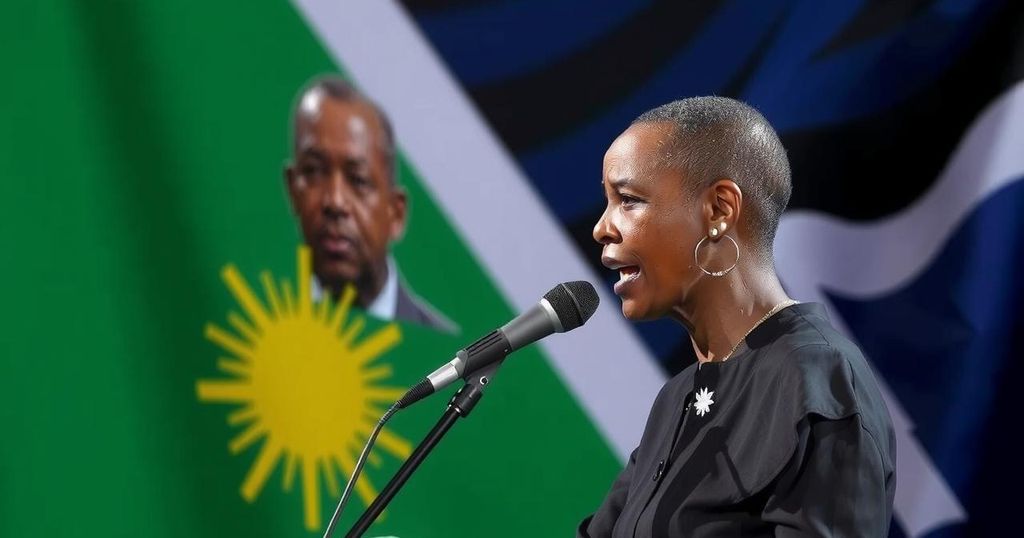Botswana’s Governing Party Faces Historic Defeat, Initial Election Results Indicate
Early election results in Botswana indicate a significant shift away from nearly sixty years of rule by the Botswana Democratic Party (BDP). The left-leaning Umbrella for Democratic Change (UDC) is leading with substantial seats in parliament, fueled by public discontent over unemployment and government mismanagement. As the BDP struggles to retain power, calls for economic reform and diversification are growing among voters.
Botswana’s President Mokgweetsi Masisi and his Botswana Democratic Party (BDP), which has maintained power since independence in 1966, appear to be facing a historic defeat in the recent elections according to initial tallies released on Friday. Reports from polling centers indicated a significant shift in voter preference towards the left-leaning Umbrella for Democratic Change (UDC) party, which has secured a notable portion of legislative seats. As of the latest count, the opposition coalition collectively won 31 out of 61 available seats in the national assembly. The Independent Electoral Commission is expected to confirm these results shortly. Initial tallies reveal that out of the significant voter base of over one million, the BDP has only managed to claim a single seat thus far, leading to speculation of a hung parliament. The opposition UDC, under the leadership of Duma Boko, has emerged as the dominant force with 19 seats, followed by the Botswana Congress Party with seven, and the Botswana Patriotic Front with five. Issues such as high unemployment rates, reaching 27 percent, and allegations of corruption within the Masisi administration have shaped public sentiment against the ruling party. The UDC’s notable success in local council elections also hints at broader electoral trends favoring the opposition. Boko expressed this sense of change, asserting, “CHANGE IS HERE” on social media. The decline in the BDP’s popularity, observed over the years, has led to growing calls for a fresh political direction, especially in light of economic challenges, including a downturn in diamond sales — Botswana’s primary source of income. Analysts suggest that the incoming government will face crucial tasks such as economic stabilization, job creation, particularly for the youth, and the diversification of the economy away from diamond dependence.
Botswana, located in southern Africa, has been governed by the Botswana Democratic Party (BDP) for nearly sixty years, coinciding with the nation’s independence from British rule in 1966. As a nation rich in diamond resources, Botswana has historically leveraged these for economic growth. However, recent years have seen a rise in public frustration over issues such as mismanagement of resources, rampant unemployment, and growing disparities in wealth. The UDC, a coalition formed to challenge the BDP’s long-standing dominance, has gained traction among voters seeking different governance and solutions to persistent economic woes. The ongoing general elections mark a potentially transformative moment in Botswana’s political landscape.
The preliminary results of the recent elections in Botswana signify a potential end to the BDP’s long-held dominance in national politics, driven largely by public discontent over economic management and social issues. The UDC’s significant gains suggest a shift in the electorate’s priorities, indicating a desire for change. Following these developments, the new government must prioritize economic diversification and job creation to address the pressing challenges facing the nation.
Original Source: www.france24.com




Post Comment